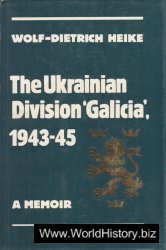The war was fought in the realm of words and the arts. In Germany,
scholars like the theologian Adolf von Hamack and the economist Werner
Sombart as well as literary giants like Thomas Mann asserted the need for
Germany, with its superior culture, to triumph on the battlefield over
enemies like Great Britain. Mann, along with the English poet Rupert
Brooke and other writers throughout the continent, hailed the war as a
purifying experience that would wash away the meanness and routine of
peacetime life. In Britain, H. G. Wells took up the pen with equal vigor.
"There shall be no more Kaiser, there shall be no more Krupps; we are
resolved. That foolery will end," he wrote in August 1914.-'' British and
German clergymen were equally enthusiastic. Arthur F. Winnington-Ingram,
the Lord Bishop of London, stated the issue clearly: "We are on the
side of Christianity against anti-Christ." Pastors like Otto Zurhellen responded
by accusing Germany's enemies of striking at it due to envy. Even
in the face of the blood spilled in torrents on the Somme, A. Conan Doyle
could write in spring 1918: "Those young lives were gladly laid down as a
price for final victory—and history may show that it was really on those
Picardy slopes that final victory was in truth ensured."
In the hands of patriots, the visual and performing arts likewise contributed
to pumping up the war effort. A poster entitled "The U-Boats Are Here"
by the German artist Hans Rudi Erdt showed the home front that the British
were paying a price for the war. Meanwhile, the posters of English artist
Frank Brangwyn condemned German Zeppelin raids and urged civilians to
stand behind the men in the trenches by buying war bonds. As late as
October 1918, Britain's official war artist, James McBey, could paint a
glamorous painting, Lawrence of Arabia, to show the legendary hero
victorious in Damascus. At the other end of Europe, Russian artists joined
in to celebrate the war. Hubertus Jahn concluded his study of "patriotic
culture" in that country by noting, "Postcards, posters, and films [all] played
important roles in the distribution of patriotic motifs and in wartime
entertainment in general." Anti-foreign feeling flourished among civilian
populations from the start of the war. In Berlin the popular Hotel Westminster
now welcomed guests as the newly named Lindenhof German music
was banned from public performances by many orchestras in Britain and
France. The sinking of the civilian liner Lusitania in May 1915 led to a wave
of violence against naturalized British subjects who had been bom in
Germany. Englishmen with German-sounding names were harassed, and
many English families hurriedly anglicized their names at the start of the
war. By the close of 1916, American embassy personnel in Berlin found
themselves in danger of assault when speaking English on the street.




 World History
World History









